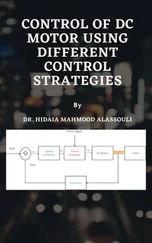“May I join you?” he asked. He folded his newspaper into precise halves, picked up his drink, and walked over to sit next to Osnat. “Moshe Feldman,” he said. “Pleasure to meet you. Can I buy you coffee?”
A waiter they hadn’t seen before appeared before Moshe had even raised his hand, carrying a filigreed coffee service. He deposited it on their table, poured out two eggshell-sized cups of cardamom-flavored coffee, produced a bottle of mineral water and two glasses from his apron pocket, and left.
Cohen reached for the water.
Moshe reached for Cohen’s hand.
Li reached for her gun.
“Please,” Moshe said. “Drink your coffee first.”
Li picked hers up, drank, grimaced.
‹Are you all right?› Cohen asked anxiously.
‹God, that’s shitty coffee!›
‹Is that a yes or a no, Catherine?›
‹Yeah, I’m fine.› But as she set the cup back in the saucer he felt a chilly little quiver of pain and shock run across the intraface.
All her systems, biological and synthetic, natural and artificial, kicked into overdrive to identify the attack and tally up the damage. Cohen could feel the churning, chaotic, complicated process unfolding as clearly as if he were inside her skin and not sitting in his own chair with two feet of air between them. Eventually she identified the cold prick of pain as the point of a needle sliding into the web of skin between thumb and forefinger. ‹It’s fine,› she told him a moment later. ‹DNA sampler.›
‹He’s a suspicious bastard, isn’t he?›
‹Unless he has some reason to mistrust us that you’re not telling me about?›
As he picked up his own cup and felt the needle slide into Roland’s flesh, Cohen decided that the implied question in that statement was one he’d rather leave unanswered.
It took Moshe an hour to do the genetic work.
“Well,” Li asked when he finally returned, “are we who we say we are?”
“Apparently. Even Cohen’s…er…”
“Face,” Cohen prompted.
“Right. Even the, er, face is who you told us he would be.” Moshe paused uncomfortably. “How do you acquire your bodies, by the way? Do you grow them?”
“Good heavens, no! We’re not the Syndicates. He’s a real person. Parents, passport, bank accounts. Bank accounts that are substantially better funded since he started working for me.”
Cohen crossed his arms, realized the gesture looked defensive, and asked himself whether deep down inside he might not have something to feel just the tiniest bit guilty about. Hadn’t Roland been meaning to put himself through medical school back when they first met? When was the last time he’d heard anything about that? Was Li right, God forbid? Did he just sort of …swallow people? He pushed away that unwelcome thought, telling himself that he’d ask Roland how med school was going next time they saw each other.
“And how much does it cost to…what’s the right word…rent someone?”
Cohen grinned. “If you have to ask, you can’t afford it.”
“And it’s legal, is it?”
“Well, mostly.” Cohen felt Li’s smirk tickling at the back of his mind. “As my associate has just pointed out, it’s easier to bend the rules when you’re filthy stinking rich.”
“Mmm.” Moshe’s expression sharpened. “Speaking of bending the rules, I understood that ALEF would send one representative to the bidding. And that it would be someone we could vet beforehand to make sure they didn’t pose any security risks.” His eyes touched briefly on Li, then skittered away again. “But now here you are with one of the, uh, least vettable individuals in UN space.”
‹He could talk to me about it,› Li said. ‹What the hell’s wrong with these people, anyway?›
“You could talk to her about it,” Cohen repeated, mimicking her annoyed tone with such painstaking precision that only someone who hadn’t grown up surrounded by the twenty-four-hour hum of spinstream traffic could have mistaken the words for Cohen’s.
Moshe turned to face Li. “I have no problem with talking to you. Or with your genetics. Or your enhancements. Or your status under UN law, Jewish law, or any other law. What I do have a problem with is trusting a former Peacekeeper with information that we most assuredly do not wish to share with the Controlled Technology Committee.”
“The operative word there is former,” Li said. “I lost my commission three years ago.”
Moshe’s eyes flicked to Li’s throat and wrists. “But you didn’t lose your wetware. What assurance can you give me that everything you see and hear isn’t feeding straight into UNSec data banks?”
A slow smile spread across Li’s face. “I’m not a very subtle person, Moshe. If you’ve got something to say, you’d better say it.”
“Just that I wonder why they didn’t reclaim your wetware. And how it could have taken your superiors eleven years to get around to prosecuting you for shooting those prisoners.”
“I bought my wetware by signing my pension back to the government. Any soldier’s entitled to do that, and most do, if only to avoid the surgery. As for the rest…you’re spinning fairy tales. The court-martial proceedings were public. Man on the street knows as much about it as I do. Just look at the spins.”
“Spins can be faked. Anyone who’s worked on EMET knows that.”
Li stared across the table, her face calm, her eyes level. This must be costing her, Cohen realized, but he had no idea how much. Three years after the court-martial they’d still never talked about it. And even his most cautious attempts to cross that particular no-man’s-land had been violently rebuffed.
“Unfortunately,” Li said when he’d just about decided she wasn’t going to say anything, “those particular spins don’t seem to have been faked.”
She and Moshe stared at each other, locked in one of those testosterone-fueled battles of will that Cohen, three centuries removed from his only unmediated human memories, was beginning to find increasingly incomprehensible.
Finally Moshe leaned forward in his chair, the flimsy metal creaking under his weight. “The thing is, Major, I just don’t trust you.”
“You want ALEF as a bidder, you’ll have to trust me.”
Moshe pursed his lips.
“Do you need to talk to someone?” Li asked. The question came off of a collective work space shared by Li, Cohen, router/decomposer, and a gaggle of chattering semisentients, but it seemed politic to let Li ask it. Moshe had clearly slipped into the trap of treating the two bodies in front of him as separate entities…and you never knew when that sort of misconception might work to your advantage.
“No. I have discretion.” He hesitated for another instant. “All right then. We go forward. For now. But we may require additional bona fides after the next meeting.”
“You may not be the only one,” Li retorted. “We still have nothing more than your word that the seller’s genuine. What about his bona fides ?”
“That’s between you and the seller.” Moshe got to his feet, left the paper on the table, and dropped a few shekels on top of it. “I just open the cage and crack the whip. Whether the bear decides to dance for you or eat you is your problem.”
The individual’s enhancement of his or her reproductive chances never happens in a void but only in relation to the reproductive chances of other members of the species. Just as corporations seek to externalize their costs of production, individuals inevitably seek to externalize their costs of reproduction, enhancing the value of their own genetic property by reducing the value of their neighbors’ genetic property. When twentieth-century existentialists sipped coffee in Parisian cafés, or twenty-first-century shoppers flocked to Wal-Mart for cheap consumer goods, they were both participants in a global economy whose ultimate evolutionary effect was to shift the means of reproduction (high protein diets, high standards of living, paid child care, etc.) to the Consuming Nations, while shifting the limiting factors on reproduction (war, poverty, pollution, etc.) to Producing Nations…
Читать дальше












